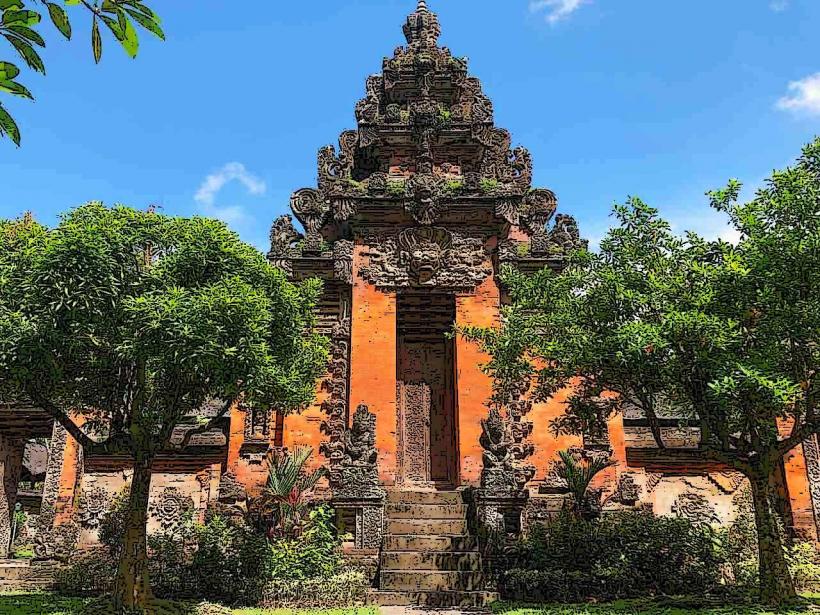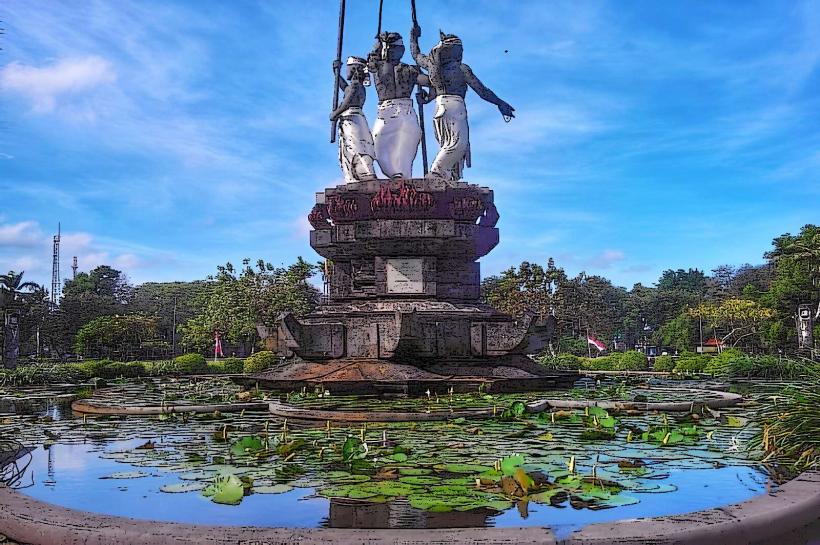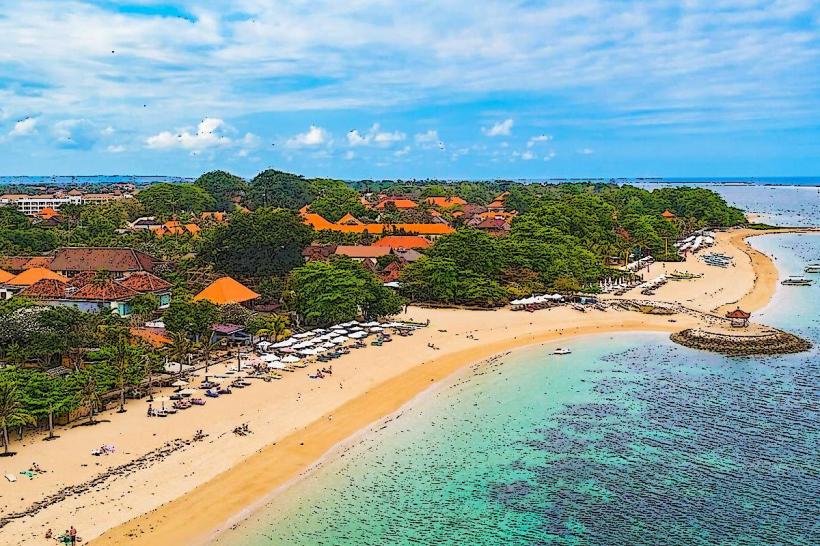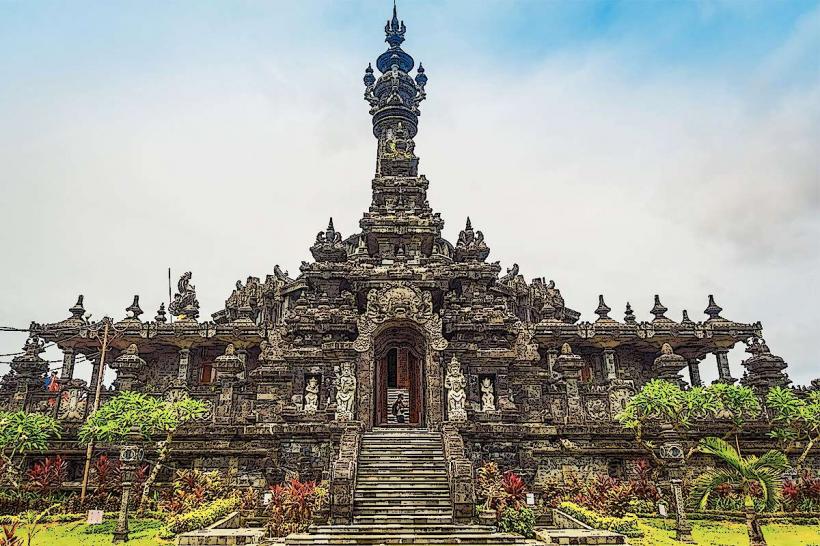Information
Landmark: Kumbasari MarketCity: Denpasar
Country: Indonesia
Continent: Asia
Kumbasari Market, Denpasar, Indonesia, Asia
Kumbasari Market is a multi-story public market located in Denpasar, Bali, Indonesia. It functions as a primary hub for local commerce and crafts.
Visual Characteristics
The structure is a concrete building with multiple levels. The exterior is painted in neutral tones, primarily white and grey, with some sections featuring terracotta-colored accents. The ground floor houses numerous stalls with open fronts, while upper floors contain more enclosed shops. The building's design is functional, prioritizing utility over elaborate ornamentation.
Location & Access Logistics
Kumbasari Market is situated in the city center of Denpasar, on Jalan Gajah Mada. It is approximately 1 kilometer west of Puputan Square. Parking is available in designated areas surrounding the market, though it can become congested during peak hours. Several local bus routes serve the area, with stops located within a short walking distance.
Historical & Ecological Origin
The market was established to consolidate various traditional trading activities in Denpasar. Its origins trace back to the need for a centralized marketplace to support the local economy and facilitate the exchange of goods. The current structure was developed over time to accommodate growing trade volumes.
Key Highlights & Activities
Visitors can purchase a wide range of local products, including textiles, handicrafts, souvenirs, and traditional Balinese clothing. The ground floor is dedicated to fresh produce, spices, and food items. Bargaining is a common practice for many goods. Observing the daily commerce and interacting with local vendors are primary activities.
Infrastructure & Amenities
Restrooms are available on multiple floors. Limited shaded areas are present within the market stalls. Cell phone signal (4G) is generally consistent within the building. Food vendors are present throughout the market, offering local snacks and meals.
Best Time to Visit
For the freshest produce and widest selection of goods, visiting in the early morning, between 6:00 AM and 9:00 AM, is recommended. The market is busiest from 9:00 AM to 2:00 PM. The afternoon sees a decrease in activity.
Facts & Legends
Kumbasari Market is known for its extensive collection of Balinese silver jewelry and wood carvings. A specific tip for visitors is to explore the upper floors for less common artisanal crafts that may not be displayed prominently on the ground level.
Nearby Landmarks
- Pasar Badung (0.1km East)
- Denpasar City Hall (0.5km Southeast)
- Puputan Square (1km East)
- Museum Bali (1.2km Northeast)









